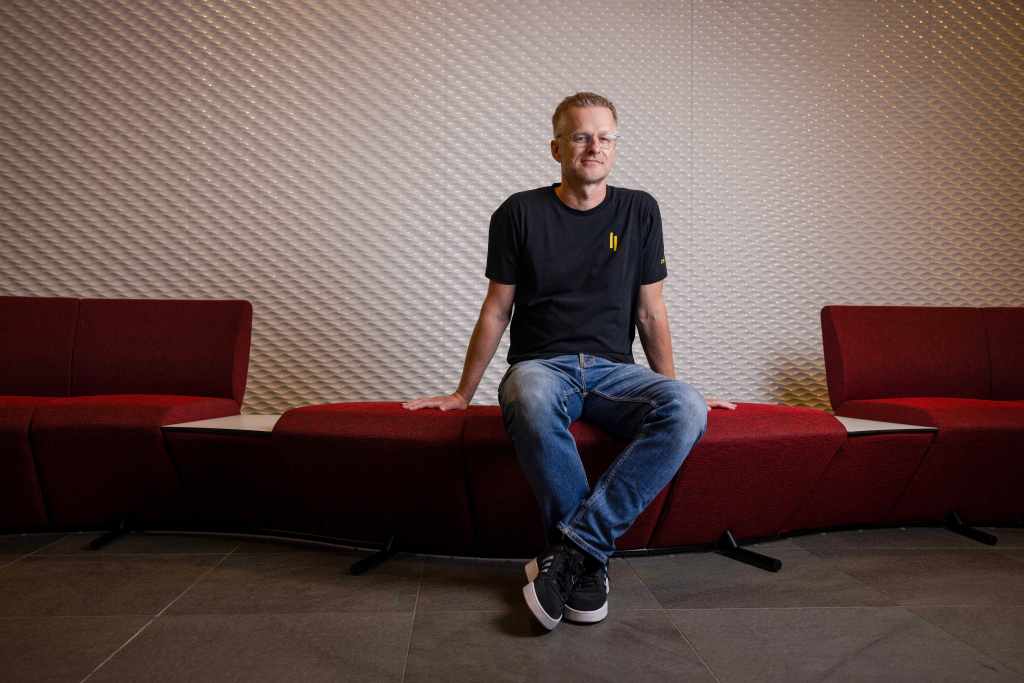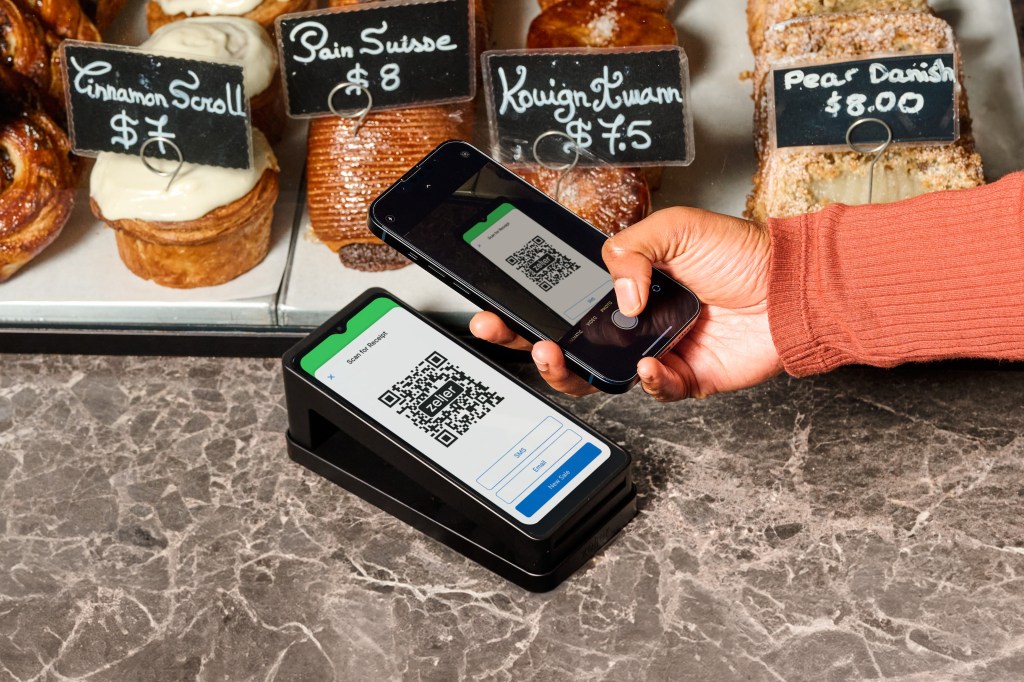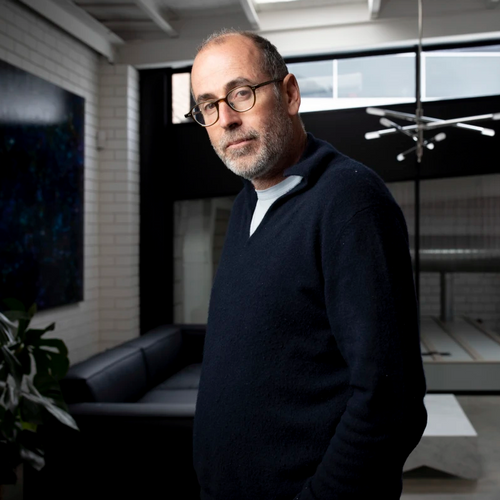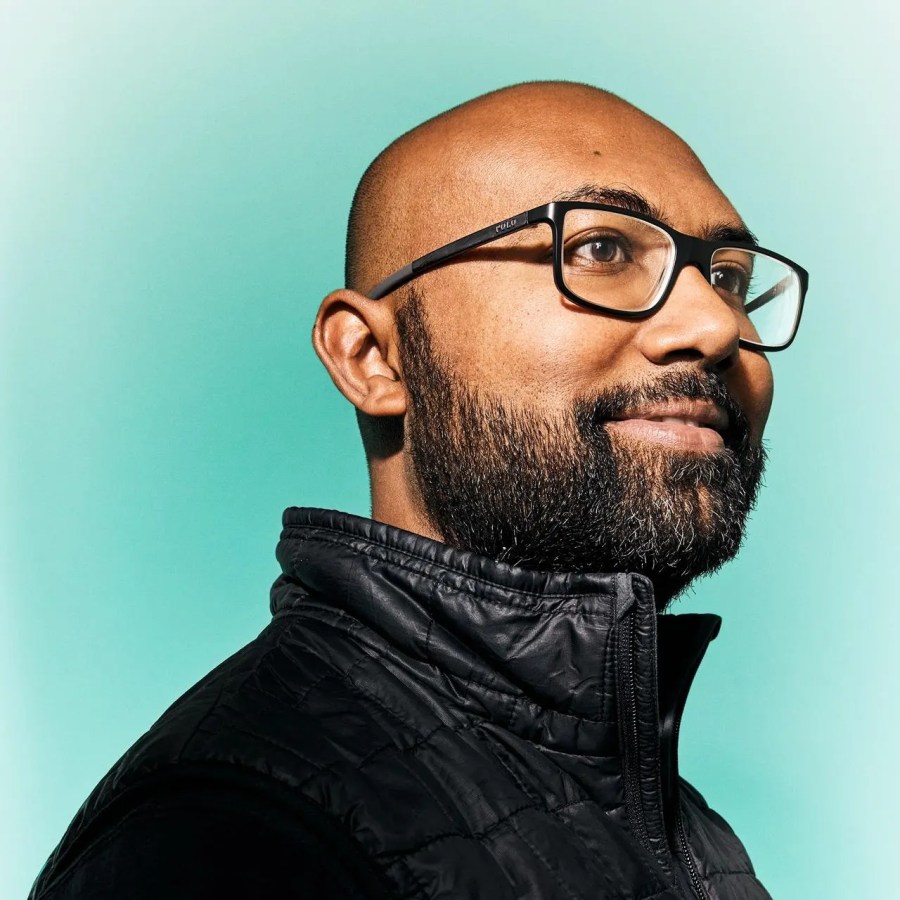Founded in the early days of the pandemic by former Square Country Manager Ben Pfisterer, Zeller quickly became one of Australia’s fastest startups to achieve unicorn status. Rooted in Melbourne, the company has just launched its latest payments terminal.

When Ben Pfisterer left Square in 2019 he had big ideas about starting an Australian company that could disrupt the banking sector.
“Australia is a hotbed for fintech. It’s one of the most innovative payments markets in the world,” Pfisterer explains from Zeller’s headquarters in Melbourne’s CBD.
“I thought – naively at the time – this is a huge opportunity. You can’t have four massive banks just holding this all to themselves. Australians should be innovating in this space.”
Over a coffee at the Bicycle Thieves cafe in the Melbourne suburb of Northcote, Pfisterer’s younger brother convinced him to take the leap into becoming a fintech founder.
“I pontificated and procrastinated about it for a few months. And I had a chat with my brother who owns a small business, and he just heard me whinging about wanting to start this business.
“He says – ‘why don’t you just do it?’ I said, ‘you don’t understand, it’s too hard’. He says, ‘why? Just do it. That’s how simple it can be.'”
Less than four years later, the brotherly banter about taking a leap of faith to disrupt payments in Australia has paid off. Zeller achieved unicorn status during its 2022 series B funding round led by US VC firm Headline, with participation from early Australian investors Square Peg, Addition, and Spark Capital.
“Three and a half years since launch we’re about to hit 65,000 customers,” says Pfisterer. “We have grown incredibly fast, but steadily the whole time. Even throughout covid which was mind-blowing to us – 1500 businesses signed up in the first month.”

The company is now launching a new streamlined terminal designed in Melbourne that can be purchased directly through its website.
“People spend millions of dollars on fitting out their beautiful cafe or retail store, and then they clump this big ugly terminal on the counter. We think we can do it better. If we build it ourselves – designing it and stripping the cost out of it – we can offer it at a price that’s never been seen before,” says Pfisterer.
The difference between the $199 Zeller terminal and others in the market, is there is no recurring charge for the vendor.
“If you look at every other terminal you are paying between $30 to $40 a month indefinitely. The price point is recurring and prohibitive.”
The fee per transaction that Zeller offers is lower too.
“One of the most confusing things that businesses have to deal with historically, is you have to pay a different fee depending on what card each customer uses. It’s impossible to understand,” says Pfisterer.
Under Zeller’s terms of engagement, a flat 1.4% is paid on each transaction, making revenue more predictable for business owners.
“Square is 1.6%. The banks, good luck trying to work out what the pricing is. We come in at 1.4% which is ridiculously competitive,” says Pfisterer.
The new terminal is a part of the CEO’s holistic vision for the company. Pfisterer built Zeller to not just facilitate payments but to create an entire payments ecosystem.
IBS Intelligence provides analysis on fintech companies and says there are three major advantages to the Zeller platform: industry-leading integration; faster checkout; and accurate reconciliation.
“We built a next-generation terminal that has everything built in. We want to give solutions that are more aesthetically beautiful, easy to use, bigger screens, more functionality,” says Pfisterer.
“There’s a point of sale system, you can connect your accounting system, have different logins for staff members. And the price point is accessible to businesses who are cost-conscious at the moment.”
The founder’s path to building a unicorn
Prior to Square, Pfisterer cut his teeth at Australian companies Jetstar, owned by Qantas, and NAB. Working in a team tasked with innovation due diligence at one of Australia’s big banks facilitated his transition to the local outpost of California-headquartered company Visa. In 2014 Pfisterer received a phone call from an unknown Bay Area phone number.
“I got a sort of a cryptic headhunter call from San Francisco. He said, I can’t tell you who it is – but there’s this guy who runs a social media platform and payments business. He wants to have a chat,” says Pfisterer.

“Having worked at Visa and knowing the industry, it was clear he was talking about Jack Dorsey.”
Pfisterer flew to SFO and interviewed for the Australian Country Manager position at Dorsey’s company Square.
“I had 31 interviews in two days. I joke that they either weren’t sure about me or they were very serious about the recruitment process. It was an amazing experience, a whirlwind of interviews. By the end of it, I really wanted the job.”
“We love competition. We’re seeing all the big banks now have similar terminals in terms of hardware – but not by ecosystem. We want to keep moving and keep innovating.”
Ben Pfisterer, co-founder Zeller
The next five years at Square equipped Pfisterer with insight into what was required to disrupt Australia’s tightly-held and lucrative banking sector. The first challenge was finding people with the expertise to tackle banking in a non-traditional way.
“I was the first person, and I had to build a small team. I couldn’t find anyone with the precise relevant background, so I got very good at finding personalities and traits in people that were adjacent, and would be able to grow into the role and then prosper,” says Pfisterer.
There was some resistance from the industry to taking on Australia’s powerful banks, as well as to the proposition that payments could be safely processed via a Square device connected to a mobile phone.
“There was an enormous amount of complexity in setting Square up in Australia. It was kind of like my practice run.”
That run came to an end in 2019. In the months after leaving Square, Pfisterer sat down with his brother at the Northcote cafe. It’s a moment he looks back on fondly, knowing how far Zeller has come in such a short time.
“Our initial proposition had a terminal, a transaction account and a card built in. And anyone in the space knows that normally when you build a fintech, you will maybe build one of those things. We knew we were bringing those three together. There was absolutely no way I could do it myself,” he says.
He partnered with co-founder Dominic Yap, now the company COO.
“Dom worked in my team at Square so I knew that we worked well together. I knew he was a superstar and a very high-caliber performer so I had no doubt he’d be an amazing co-founder,” Pfisterer says.
The co-founders differentiated their new company from Square by targeting a broader customer base.
“Square was still very much about the small mobile reader for small businesses, it wasn’t about your bigger locations, your countertop solutions, your franchises, your groups and things like that. Which is where our sweet spot is,” says Pfisterer.
The co-founders built out the technical team and divided the heavy workload between two CTOs, David Conn and Alfred Wong. The strong founding team attracted $6.3 million in early capital led by SquarePeg.
“Ben, Dom and the team have the ability to disrupt the industry, to scale something from scratch and surround themselves with a super talented team to go after their vision – we are already seeing this dynamic play out in some of the early hires they’ve made,” Square Peg co-founder and partner Paul Bassat said in 2020.

Bassat acknowledged the mission of Zeller was highly ambitious, and that pulling it off would take a stellar founding team. His conviction in the thesis of Zeller was so high that he wrote the first cheque, and joined the board, before a product had been launched.
Today, the early bets of Pfisterer, Yap, and Bassat are showing dividends, both in terms of the traction of the Zeller product in the marketplace, and the impact the company is having on the Australian banking system generally.
“We’re seeing all the big banks now have similar terminals in terms of hardware – but not by ecosystem or anything else,” says Pfisterer. “We love competition. We want to keep moving, and keep innovating.”
Look back on the week that was with hand-picked articles from Australia and around the world. Sign up to the Forbes Australia newsletter here or become a member here.


